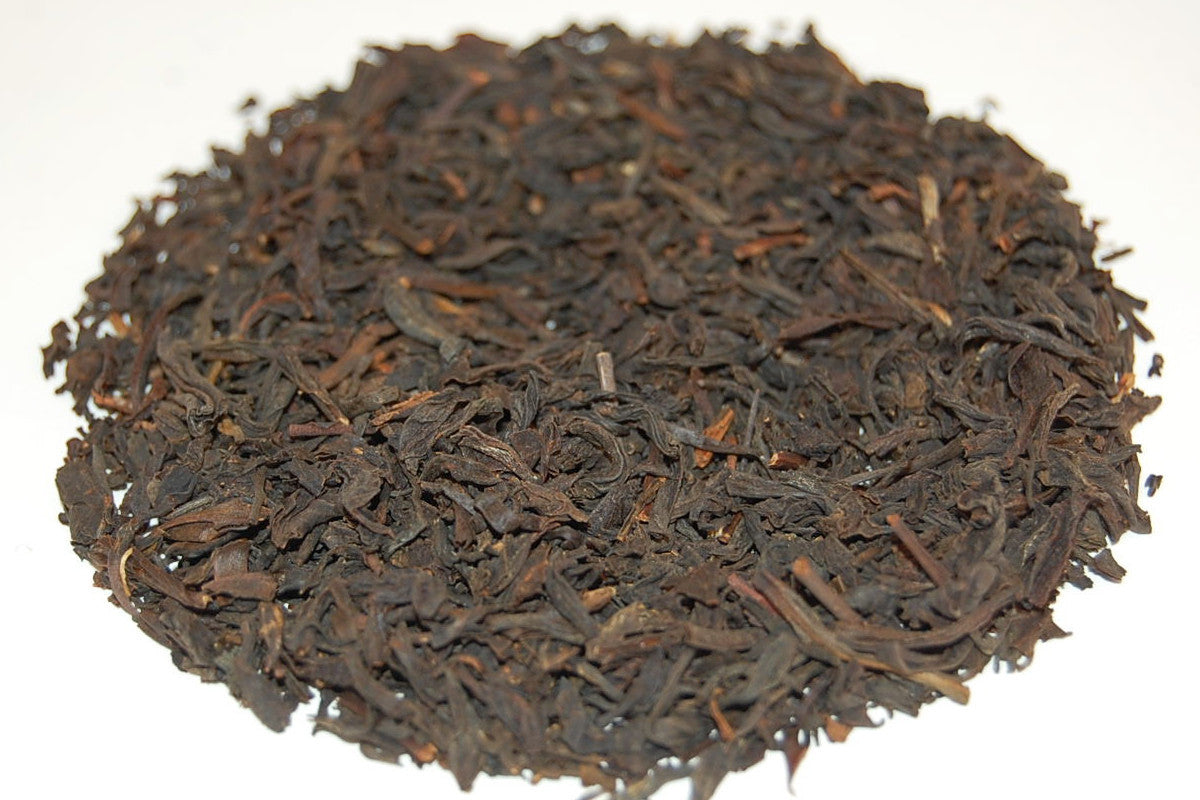What are some of Chinese black tea health benefits, nutrition, recipes, & side effects? The health benefits of Chinese black tea transcend its role as a beverage, positioning it as a multifaceted elixir promoting overall well-being. From cardiovascular health to cognitive function, from digestive well-being to skin health, this tea weaves a tapestry of advantages that beckon enthusiasts to savor not only its rich flavor but also the myriad benefits it imparts. Embracing Chinese black tea as a part of a balanced lifestyle may pave the way for a healthier and more vibrant existence. In this article, we will share some of Chinese black tea’s health benefits, nutrition, recipes, & side effects. Keep reading.
Nutritional facts of Chinese black tea
Chinese black tea, a beverage deeply rooted in China’s rich cultural heritage, has garnered global recognition for its distinct flavor and myriad health benefits. Renowned for its bold, robust taste and dark, inviting hue, this tea variant stands out among its counterparts. Beyond its delightful aroma and exquisite taste, Chinese black tea boasts an array of nutritional elements that contribute to its popularity.
Rich in Antioxidants
One of the key nutritional advantages of Chinese black tea lies in its potent antioxidant content. These antioxidants, such as thearubigins and theaflavins, play a pivotal role in combating free radicals within the body. By neutralizing these harmful molecules, Chinese black tea assists in reducing oxidative stress, promoting overall well-being, and fortifying the body’s natural defense mechanisms.
Essential Vitamins and Minerals
Delving into the nutritional profile, Chinese black tea unveils a treasure trove of essential vitamins and minerals. Laden with vitamins B2, B3, and B5, as well as vital minerals like manganese and potassium, it provides a wholesome supplement to daily dietary requirements. The amalgamation of these micronutrients aids in maintaining optimal bodily functions, supporting metabolism, and fostering a healthy cardiovascular system.
Moderate Caffeine Boost
For those seeking a moderate caffeine boost, Chinese black tea stands as a commendable choice. With a caffeine content falling between that of green tea and coffee, it offers gentle stimulation without the jitters associated with higher-caffeine beverages. This makes it an ideal option for individuals looking to enhance alertness and concentration without compromising on a balanced and measured intake of caffeine.
Weight Management Ally
Chinese black tea has also carved a niche as a potential ally in weight management endeavors. Its natural polyphenols, coupled with the modest caffeine content, contribute to boosting metabolism. This not only aids in calorie burning but also supports efforts to maintain a healthy weight. Embracing Chinese black tea as part of a well-rounded lifestyle may offer subtle yet beneficial support for those on a journey toward weight management.
Digestive Elixir
Embracing Chinese black tea goes beyond mere gustatory pleasure; it extends to digestive wellness. Tannins present in the tea have been linked to improved digestion by assisting in the breakdown of food. Additionally, the moderate caffeine content can stimulate gastric acid production, fostering a conducive environment for efficient digestion. This digestive elixir aspect adds another layer of appeal to the holistic health benefits associated with Chinese black tea.
How much Chinese black tea to drink every day?
Chinese black tea, renowned for its rich flavors and deep aromas, has captivated tea enthusiasts globally. The question of how much of this exquisite beverage one should consume daily is not a straightforward inquiry, as individual preferences, health considerations, and the diverse array of black teas available must be taken into account.
Personal Preferences and Tolerance Levels
When contemplating your daily intake of Chinese black tea, it is imperative to consider personal preferences. Each individual’s taste buds are unique, and factors such as desired strength, bitterness tolerance, and preferred brewing methods play a pivotal role. Some may find solace in savoring multiple cups throughout the day, reveling in the subtle nuances of different varieties, while others may opt for a single, meticulously brewed cup.
The Influence of Health Considerations
The impact of Chinese black tea on one’s health should not be underestimated. While moderate consumption is generally considered safe and even beneficial, exceeding recommended limits may lead to unintended consequences. Health-conscious tea enthusiasts should be mindful of their caffeine intake, as excessive consumption can potentially disrupt sleep patterns and contribute to increased heart rate.
Understanding Caffeine Content
Caffeine content varies among different types of Chinese black tea. For those who are caffeine-sensitive or wish to limit their intake, opting for lower-caffeine varieties such as Keemun or Dian Hong might be a prudent choice. Conversely, individuals seeking an invigorating boost may gravitate towards high-caffeine options like Yunnan Gold. Familiarizing oneself with the caffeine levels in various teas is an informed approach to tailoring consumption to individual needs.
Exploring Diverse Black Tea Varieties
Chinese black tea encompasses a kaleidoscope of flavors and aromas, each originating from different regions and processing techniques. From the malty notes of Keemun to the honeyed sweetness of Jin Jun Mei, the sheer diversity invites exploration. Experimenting with various varieties allows tea enthusiasts to discover their preferences, thereby influencing the quantity they find most enjoyable daily.
Brewing Rituals and Enjoying the Experience
The art of brewing Chinese black tea is a ritual that extends beyond the mere act of consumption. Factors such as water temperature, steeping duration, and the choice of teaware contribute to the overall experience. Engaging in this ritual mindfully, appreciating the transformation of tea leaves into a harmonious infusion, can enhance one’s connection with the beverage and dictate the frequency and quantity deemed suitable for daily indulgence.
What is the best time to drink Chinese black tea?
Chinese black tea, renowned for its robust flavor and cultural significance, offers a nuanced drinking experience that can be enhanced by choosing the optimal time of day for consumption. Considerations such as the morning, noon, afternoon, evening, and night, as well as the timing of meals, all play crucial roles in maximizing the delightful attributes of this tea.
Morning Elixir: Kickstarting the Day
The morning, often hailed as the prime time for a revitalizing start, proves to be an ideal spot for indulging in the rich taste of Chinese black tea. The invigorating caffeine content naturally complements the body’s wake-up routine, providing a refreshing jolt to the senses. The combination of warmth and bold flavors serves as an excellent companion for easing into the day’s tasks, setting a positive tone from the very beginning.
Midday Respite: A Steady Boost
As the clock ticks towards noon, Chinese black tea continues to be a fitting choice for those seeking a sustained energy boost. Its moderate caffeine levels can help maintain focus without the potential jitteriness associated with stronger caffeinated beverages. The robust notes and earthy undertones of the tea offer a pleasant respite during the midday hustle, making it a delightful pause during a hectic schedule.
Afternoon Tranquility: Embracing Serenity
Come afternoon, Chinese black tea gracefully transitions into a beverage of tranquility. The post-lunch period, often accompanied by a slight dip in energy, can be alleviated by savoring a cup of this tea. The balanced blend of flavors provides a welcome contrast to the busyness of the day, offering a brief interlude for relaxation and contemplation.
Evening Elegance: Unwinding with Flavor
As the sun sets, Chinese black tea transforms into an elegant evening choice. The subtle complexity of its profile, accentuated by notes of sweetness and warmth, becomes a delightful accompaniment to winding down. Whether enjoyed alone or in the company of friends and family, this tea adds a touch of sophistication to evening rituals, creating a serene ambiance.
Nighttime Indulgence: A Soothing Finale
For those seeking a soothing conclusion to the day, Chinese black tea holds its own as a nighttime indulgence. The comforting warmth and gentle flavors make it a perfect companion for relaxation before bedtime. Its lower caffeine content compared to earlier in the day ensures a tranquil experience, promoting a peaceful night’s rest without compromising on taste.
Mealtime Harmony: Before and After
When it comes to mealtime, Chinese black tea displays its versatility by seamlessly integrating with culinary delights. Enjoying a cup before a meal can stimulate the appetite while having it afterward aids in digestion. The tea’s robust character complements a variety of dishes, making it a versatile beverage that enhances the overall dining experience.
How to Make Chinese black tea
The journey of crafting Chinese black tea involves a meticulous selection of tea leaves, a concise yet crucial list of ingredients, a precise adherence to proportions, and a methodical series of steps. Each element contributes to the creation of a cup that transcends mere beverage status, embodying a harmonious blend of tradition, craftsmanship, and personal preference.
Choosing the Right Chinese Black Tea
When embarking on the journey of crafting Chinese black tea, the initial step lies in the meticulous selection of the tea leaves. Opt for high-quality leaves, preferably whole leaves, as they promise a more nuanced and robust flavor profile. The diverse world of Chinese black tea offers varieties such as Keemun, Dian Hong, and lapsang souchong, each distinguished by its unique characteristics, ranging from floral notes to a smoky essence. Delve into the diverse options available and choose the tea that aligns with your taste preferences.
Essential Ingredients for Chinese Black Tea
In the realm of Chinese black tea creation, the ingredients play a pivotal role in shaping the final brew’s richness and depth. Primarily, you’ll need high-quality black tea leaves as the foundation. Additionally, the list includes fresh, filtered water and, if desired, accompaniments like sweeteners or milk. The simplicity of the ingredient list underscores the purity of the tea-making process, emphasizing the essence of the leaves and the water in achieving the desired infusion.
Precise Proportions for Perfect Infusion
Achieving the optimal balance of flavors in your Chinese black tea necessitates meticulous attention to proportions. For a single cup, typically one teaspoon of loose tea leaves suffices, but this can be adjusted based on personal preferences. The water-to-tea ratio is equally crucial; a general guideline is one cup of water for every teaspoon of tea leaves. However, experimenting with these proportions can lead to a customized brew that perfectly suits your taste buds.
Steps to Craft Chinese Black Tea
The art of making Chinese black tea unfolds through a series of deliberate steps, each contributing to the symphony of flavors in the final cup. Commence by heating the water to a temperature just below boiling, around 200-212°F (93-100°C). Gently rinse the tea leaves to awaken their essence, discarding this initial infusion. Then, add the rinsed leaves to the hot water and let them steep for the recommended time, usually 3-5 minutes, allowing the flavors to meld seamlessly.
Strain the tea into your cup, observing the mesmerizing color transformation from amber to deep mahogany. Should you prefer a stronger brew, extend the steeping time slightly, tailoring the intensity to your liking. As you savor the resulting elixir, take note of the complex interplay of aromas and flavors, a testament to the craftsmanship involved in the process of making Chinese black tea.
Health benefits of Chinese black tea
Chinese black tea, renowned for its rich history and cultural significance, boasts a plethora of health benefits that extend beyond its delightful flavor. This aromatic beverage, originating from the Camellia sinensis plant, has captured the hearts of tea connoisseurs worldwide. Delving into its medicinal properties reveals a tapestry of advantages that go far beyond mere refreshment. Here are some of the health benefits of Chinese black tea:
1. Cardiovascular Health Enhancement
The consumption of Chinese black tea has been linked to promoting cardiovascular well-being. The presence of flavonoids, such as thearubigins and theaflavins, plays a pivotal role in reducing the risk of heart disease. These antioxidants contribute to the improvement of blood vessel function, thus fostering a healthier circulatory system. Regular intake may aid in maintaining optimal blood pressure levels, contributing to an overall robust cardiovascular profile.
2. Antioxidant Abundance
Chinese black tea stands as a potent source of antioxidants, combating the detrimental effects of free radicals within the body. Polyphenols present in the tea act as shields against oxidative stress, which is often implicated in various chronic illnesses, including cancer and aging-related degeneration. Incorporating this tea into one’s daily routine can provide a substantial boost to the body’s defense mechanisms, fostering a resilient immune system.
3. Weight Management Support
For those on a journey to manage their weight, Chinese black tea emerges as a natural ally. The polyphenols in this tea contribute to the acceleration of metabolism, aiding in the efficient burning of calories. Furthermore, its moderate caffeine content enhances alertness and endurance, making it an ideal beverage for those engaging in physical activities as part of their weight management regimen.
4. Cognitive Function Enhancement
The intricate blend of compounds within Chinese black tea is believed to exert positive effects on cognitive function. The presence of L-theanine, an amino acid, complements the stimulating properties of caffeine, resulting in enhanced mental alertness without the jittery side effects. Regular consumption may support improved focus, memory retention, and overall cognitive performance.
5. Digestive Health Improvement
Chinese black tea has been associated with digestive health benefits, primarily owing to its ability to promote a balanced gut microbiota. Polyphenols within the tea possess prebiotic properties, fostering the growth of beneficial bacteria in the digestive tract. This, in turn, aids in digestion, reduces inflammation and contributes to overall gastrointestinal well-being.
6. Immune System Fortification
The immune-boosting properties of Chinese black tea are attributed to its rich polyphenolic content. These compounds exhibit antimicrobial and antiviral properties, potentially aiding in the prevention of infections and illnesses. Regular consumption may contribute to a strengthened immune system, providing the body with a robust defense against external threats.
7. Blood Sugar Regulation
Chinese black tea showcases promising potential in assisting with blood sugar regulation. Research suggests that the polyphenols in the tea may play a role in improving insulin sensitivity and reducing the risk of type 2 diabetes. Including this tea in a balanced diet may contribute to maintaining stable blood sugar levels and supporting overall metabolic health.

8. Dental Health Benefits
Beyond its internal health perks, Chinese black tea extends its benefits to oral hygiene. Polyphenols present in the tea possess antimicrobial properties, helping to combat harmful bacteria in the mouth. This not only contributes to fresher breath but also plays a role in preventing the formation of plaque and reducing the risk of cavities.
9. Stress Reduction and Relaxation
The calming effects of Chinese black tea are attributed to its L-theanine content, which promotes relaxation without inducing drowsiness. This makes it an ideal beverage to unwind with, offering a soothing respite from the stresses of daily life. The ritualistic preparation and consumption of this tea can be a therapeutic practice for those seeking moments of tranquility.
10. Bone Health Maintenance
Chinese black tea contributes to the maintenance of bone health through its rich supply of phytochemicals. Studies suggest that tea may aid in enhancing bone density and reducing the risk of osteoporosis. Regular consumption, combined with a balanced diet, may play a supportive role in preserving skeletal strength and integrity.
11. Skin Health Promotion
Unlocking another dimension of its health benefits, Chinese black tea exhibits properties that promote skin health. The antioxidants present in the tea assist in neutralizing free radicals, preventing oxidative damage to the skin cells. Including this tea in one’s routine may contribute to a healthier complexion, reducing the signs of premature aging.
12. Respiratory Health Support
The theaflavins found in Chinese black tea have been linked to respiratory health benefits. These compounds demonstrate anti-inflammatory properties that may provide relief to individuals with respiratory conditions such as asthma. While not a substitute for medical treatment, incorporating this tea into a well-rounded lifestyle may offer supplementary support.
13. Anticancer Potential
Research indicates that Chinese black tea possesses potential anticancer properties, attributed to its polyphenolic compounds. These compounds exhibit anti-proliferative and anti-inflammatory effects, suggesting a role in preventing the development of certain types of cancers. However, it’s crucial to note that further extensive research is needed to establish definitive links in this regard.
14. Antimicrobial Action
Chinese black tea’s antimicrobial properties extend beyond oral health, with potential benefits against various pathogens. The polyphenols in the tea exhibit inhibitory effects against bacteria and viruses, showcasing their potential as a natural defense mechanism against infections. While not a substitute for medical treatments, its inclusion in a well-rounded lifestyle may contribute to overall health and wellness.
15. Regulation of Cholesterol Levels
Maintaining optimal cholesterol levels is vital for heart health, and Chinese black tea may play a role in this regard. Research suggests that regular consumption of this tea may contribute to the reduction of LDL cholesterol levels while maintaining or even increasing HDL cholesterol levels. This dual action supports cardiovascular health and reduces the risk of atherosclerosis.
16. Anti-Inflammatory Effects
Chronic inflammation is implicated in various health conditions, and Chinese black tea offers potential anti-inflammatory effects. The polyphenols present in the tea may help modulate inflammatory responses, contributing to the prevention or management of inflammatory-related disorders. Integrating this tea into a balanced diet may serve as a flavorful strategy for promoting overall well-being.
17. Liver Health Promotion
The theaflavins in Chinese black tea have shown promise in promoting liver health. Research suggests that these compounds may contribute to protecting the liver from oxidative stress and inflammation. While not a substitute for a healthy lifestyle, incorporating this tea into a well-rounded diet may offer additional support for liver function.
18. Hormonal Balance Support
Chinese black tea’s potential to support hormonal balance is linked to its polyphenolic content. These compounds may have modulating effects on hormone levels, contributing to the maintenance of hormonal balance in the body. While not a replacement for medical interventions, incorporating this tea into a balanced lifestyle may offer supplementary support.
19. Reduction of Anxiety
The combination of caffeine and L-theanine in Chinese black tea may exert anxiolytic effects, contributing to the reduction of anxiety and stress levels. The synergistic interaction between these compounds promotes a sense of calmness without the jitteriness often associated with high caffeine intake. Enjoying this tea can thus be a comforting ritual for those seeking relaxation.
20. Joint Health Support
Chinese black tea’s potential benefits extend to joint health, with research suggesting its anti-inflammatory properties may alleviate symptoms associated with arthritis. While not a cure, regular consumption of this tea, coupled with a healthy lifestyle, may offer supplementary support for joint comfort and mobility. How AI, ChatGPT maximizes earnings of many people in minutes
21. Enhanced Exercise Performance
For individuals engaging in physical activities, Chinese black tea may serve as a natural enhancer of exercise performance. The moderate caffeine content contributes to increased alertness and energy, potentially improving endurance during workouts. This makes it a suitable pre-exercise beverage for those looking to optimize their physical performance.
Side effects of Chinese black tea
Chinese black tea, renowned for its rich flavors and cultural significance, has captivated tea enthusiasts globally. However, beneath its aromatic surface lie ten potential side effects that warrant careful consideration. Let’s delve into each facet, unraveling the complexities and nuances associated with the consumption of this ancient beverage. Motivation – Mind – Success – Thinking – Productivity – Happiness
1. Caffeine Content
Chinese black tea, like its counterparts, contains caffeine, a natural stimulant that can influence individuals differently. While moderate caffeine intake may boost alertness and concentration, excessive consumption can lead to insomnia, restlessness, and heightened anxiety. Tea aficionados must gauge their sensitivity to caffeine and maintain a balance in their consumption.
2. Staining of Teeth
The robust pigments present in Chinese black tea, notably theaflavins, and thearubigins, contribute to its deep color and distinctive taste. However, prolonged consumption can result in teeth staining. Regular dental care, including proper brushing and periodic teeth cleaning, is crucial to counteract this cosmetic side effect and ensure a radiant smile. Business – Money Making – Marketing – E-commerce
3. Tannin Sensitivity
Tannins, natural compounds found in tea, contribute to its astringency and can pose challenges for individuals with tannin sensitivity. Excessive tannin intake may lead to digestive discomfort, including nausea and stomach upset. It is advisable for those prone to tannin sensitivity to monitor their tea intake and explore alternative tea varieties with lower tannin levels.
4. Iron Absorption Interference
Chinese black tea contains compounds that can impede the absorption of non-heme iron, prevalent in plant-based foods. For individuals with iron-deficiency anemia, excessive tea consumption may exacerbate the condition. Maintaining a balanced diet and strategically timing tea consumption away from meals can mitigate the potential interference with iron absorption. Health books, guides, exercises, habits, Diets, and more
5. Acidic Impact on Digestion
The acidity of Chinese black tea may influence individuals with pre-existing digestive issues. Those prone to acid reflux or gastritis may experience exacerbation of symptoms, including heartburn and discomfort. Adjusting tea consumption habits, opting for lower-acid teas, or consuming tea with food may help mitigate the impact on digestive health.
6. Dehydration Concerns
Despite being a liquid, Chinese black tea may contribute to dehydration due to its diuretic effect. Caffeine, a prominent component, can increase urine production, potentially leading to fluid loss. Tea enthusiasts must balance their tea intake with adequate water consumption to maintain optimal hydration levels. Fitness – Meditation – Diet – Weight Loss – Healthy Living – Yoga
7. Pregnancy Considerations
Pregnant individuals should exercise caution when consuming Chinese black tea due to its caffeine content. Excessive caffeine intake during pregnancy has been associated with an increased risk of adverse outcomes. Consultation with healthcare professionals and opting for decaffeinated tea varieties can be prudent choices during this crucial period.
8. Impact on Sleep Quality
Consuming Chinese black tea close to bedtime may disrupt sleep patterns for individuals sensitive to caffeine. The stimulating effects of caffeine can linger, hindering the ability to fall asleep or attain deep, restful slumber. Establishing a cut-off time for tea consumption, particularly in the evening, can promote better sleep hygiene. RPM 3.0 – 60% CONVERSION & Money for Affiliate Marketing
9. Potential Allergens
While rare, some individuals may exhibit allergic reactions to components present in Chinese black tea. This could manifest as skin rashes, itching, or respiratory issues. Vigilance and prompt medical attention are necessary if any allergic symptoms arise after tea consumption.
10. Quality and Purity Concerns
Ensuring the quality and purity of Chinese black tea is paramount to mitigating potential side effects. Contaminants, pesticides, or improper processing can compromise the safety and health benefits of the tea. Choosing reputable sources and opting for organic or high-quality teas can help minimize these concerns. Tea, Coffee, Energy Drinks, Juice, Beverage, Smoothie, and more
Final thought
In the world of Chinese black tea, indulging in its captivating flavors requires an awareness of potential side effects. With mindfulness and moderation, tea enthusiasts can savor this ancient elixir while navigating the intricate landscape of its diverse consequences on health and well-being.
Other Interesting Articles
- 21 Da Hong Pao Tea Health Benefits, Recipe, Side Effects
- 23 Shui Jin Gui Tea Health Benefits, Recipe, Time, Side Effects
- 22 Tie Luo Han Tea Health Benefits, Recipe, Side Effects
- 23 Shui Xian Tea Health Benefits, Recipe, Time, Side Effects
- 23 Bai Jiguan Tea Health Benefits, Recipe, Time, Side Effects
- 20 Tieguanyin (Iron Goddess) Tea Health Benefits, Side Effects
- 21 Mi Lan Xiang Dan Con Tea Health Benefits, Side Effects
- 21 Ancient Tree Dan Cong Tea Health Benefits, Side Effects
- 23 Common Disadvantages of Drinking Tea in the Morning
- 20 Disadvantages of Drinking Tea on Your Empty Stomach
- 25 Benefits of Drinking Tea in the Afternoon with Cold Water
- 25 Benefits of Drinking Tea in the Afternoon with Coffee, Cons
- 25 Benefits of Drinking Tea in the Evening with Mint, Cons
- 21 Guan Yin Tea Health Benefits, Recipe, Time, Side Effects
- 23 Dancong Tea Health Benefits, Recipe, Time, Side Effects
- 23 Cassia Tea Health Benefits, Recipe, Time, Side Effects
- 19 Da Yu Lin Tea Health Benefits, Recipe, Time, Side Effects
- 19 Dong Ding Tea Health Benefits, Recipe, Time, Side Effects
- 21 Dong Fang Meiren Tea Health Benefits, Recipe, Side Effects
- 19 Alishan Tea Health Benefits, Recipe, Time, Side Effects




